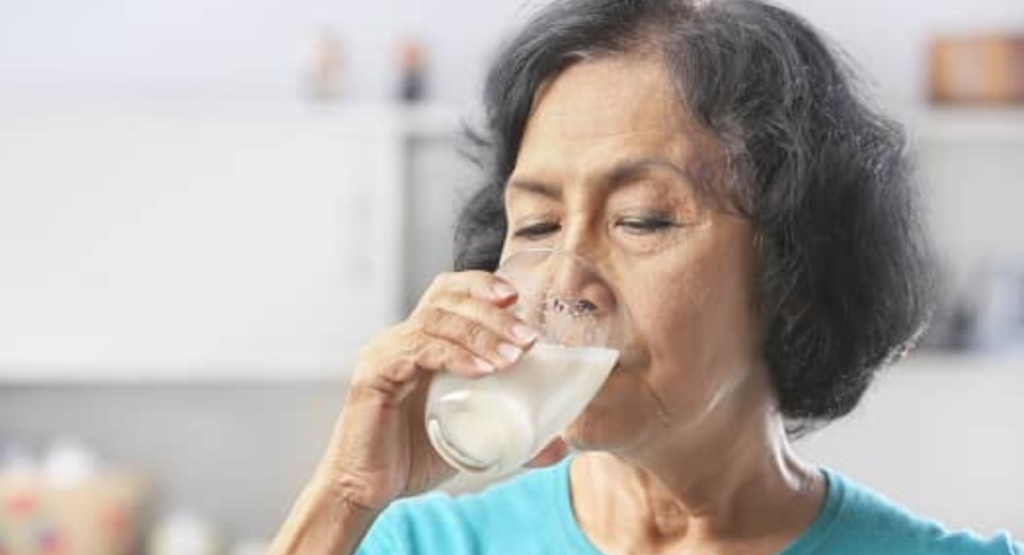Stroke is a serious medical condition that can have long-lasting effects on an individual’s health and well-being. Proper nutrition plays a crucial role in stroke recovery, prompting many patients and caregivers to wonder about the suitability of certain foods, including milk. So, can stroke patients drink milk?
Understanding Stroke
Before delving into the specifics of milk consumption for stroke patients, it’s essential to understand the nature of stroke itself. A stroke occurs when the blood supply to the brain is disrupted, leading to brain cell damage and potentially permanent neurological deficits. There are two main types of stroke: ischemic stroke, caused by a blockage in a blood vessel supplying the brain, and hemorrhagic stroke, resulting from a ruptured blood vessel. Considering this context, the question “Can Stroke Patients Drink Milk” naturally emerges as one of the inquiries regarding post-stroke dietary considerations.
Nutritional Needs After Stroke
Following a stroke, the body’s nutritional needs may change, requiring a diet rich in essential nutrients to support recovery. This includes adequate intake of vitamins, minerals, protein, and healthy fats. While there is no one-size-fits-all diet for stroke patients, healthcare professionals often emphasize the importance of consuming a balanced diet that promotes healing and reduces the risk of complications.
Benefits of Milk Consumption for Stroke Patients
Milk is a nutrient-rich beverage that can provide several benefits for stroke patients. Firstly, milk is an excellent source of calcium and vitamin D, essential for maintaining bone health and preventing osteoporosis, a common concern for stroke survivors who may experience reduced mobility. Additionally, milk contains protein, which is necessary for muscle repair and strength, aiding in the rehabilitation process after stroke. Moreover, the hydration provided by milk can help prevent complications such as urinary tract infections, which are prevalent among individuals with limited mobility.
Potential Risks and Considerations
While milk can be beneficial for many stroke patients, it’s essential to consider individual factors and potential risks. Some stroke survivors may have difficulty digesting lactose, the sugar found in milk, leading to gastrointestinal discomfort such as bloating and diarrhea. In such cases, lactose-free or dairy-free alternatives may be more suitable. Furthermore, certain medications commonly prescribed after stroke may interact with components of milk, necessitating adjustments to the diet or medication regimen.
Research Insights and Evidence
Numerous studies have explored the relationship between milk consumption and stroke risk, with mixed results. While some research suggests that moderate milk intake may be associated with a reduced risk of stroke, other studies have found no significant impact. More research is needed to fully understand the potential benefits and risks of milk consumption for stroke patients, particularly regarding long-term outcomes and individual variations.
Practical Tips for Including Milk in a Stroke Recovery Diet
For stroke patients interested in incorporating milk into their diet, there are several practical considerations to keep in mind. Opting for low-fat or skim milk can help reduce saturated fat intake, which is important for cardiovascular health. Additionally, flavored or fortified milk products may provide additional nutrients and variety, enhancing the overall nutritional value of the diet. It’s essential to consult with a healthcare professional or registered dietitian to develop a personalized meal plan that meets individual dietary needs and preferences.
Conclusion
In conclusion, when considering dietary options for stroke patients, including milk can be beneficial. “Can stroke patients drink milk?” is a common question that arises in such discussions. Milk offers essential nutrients and hydration crucial for supporting recovery and overall well-being. However, it’s imperative to assess individual needs and seek guidance from healthcare professionals. By seamlessly integrating milk and other nutrient-rich foods into a balanced diet, stroke survivors can effectively optimize their nutritional intake and bolster their journey towards recovery.
We are India’s first comprehensive continuum care provider. We provide multidisciplinary out of hospital care to acute and post-acute and chronically ill patients at our critical care facilities and your home.


